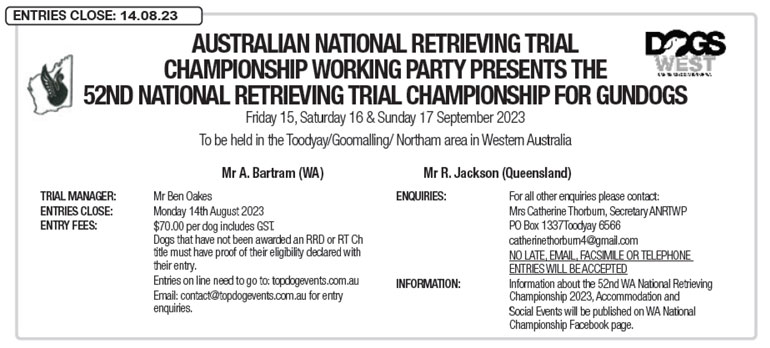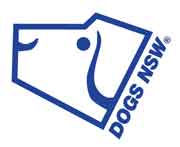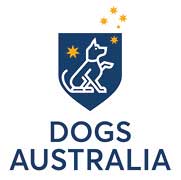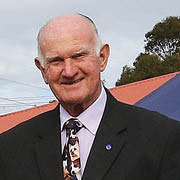News and updates
Australian National Retrieving Trial Championship Working Party presents the 52nd National Retrieving Trial Championship for Gundogs
09-08-2023Australian National Retrieving Trial Championship Working Party presents the 52nd National Retrieving Trial Championship for Gundogs on Friday 15, Saturday 16 and Sunday 17 September 2023. To be held in the Toodyay/Goomalling/Northam area in Western Australia.
Entries Close: 14 August 2023



DOGS NSW Grounds Morning Closure: Sunday 13 August - DOGS NSW Endurance Test
03-08-2023Please be advised that the DOGS NSW grounds will be closed on Sunday 13 August 2023 from 6.30am whilst the Endurance Test is being conducted. During this time no vehicle may enter or exit the grounds.
The grounds will be reopened at the completion of the test, which will be approximately midday.

Australian Sled Dog Association
01-08-2023In accordance with Item 5.7 of the June 2023 Special Board minutes, the Australian Sled Dog Sports Association has been added to the Dogs Australia Listing of Recognised Working Dog Associations or Kindred Bodies as referenced in Regulations Part 6 – The Register & Registration.
The updated listing can be found here under Regulations Part 6 on the Dogs Australia website.

DOGS NSW Chairman's Report - August 2023
31-07-2023It has come to my attention that there has been some misleading discussion on social media, where the Board was called upon to respond regarding: DOGS NSW Regulations Part 1 – The Register and Registration, clause 2.15; which permits DOGS NSW to defer its processing of any transaction concerning a dog or Prefix, owned or part owned by a Member, who is the subject of an Inquiry or investigation, that is instituted or carried out pursuant to the Regulations, or who is a Defendant in any Court proceedings which relates to the keeping of animals.
Importantly, the Board, upon the application of a Member affected by deferral, may grant dispensation from Clause 2.15 to enable affected transactions to be processed. In fact, the majority of applications for dispensation are granted, exceptions can be in cases of accusations of serious animal cruelty or application for wholesale transfer of dogs to another member. The Regulation is to prevent persons, who are the subject of investigation or proceedings, from transferring the bulk of their animals to others to circumvent their perceived risk of being suspended, so as to render any penalty inconsequential.
Further, accusations were made that the process of determination by the Dispute Assessment Panel is unfair, in that the initial complaint is not made available to a Member, who is the subject of the complaint, until the Dispute Assessment Panel has determined as to whether or not the matter should proceed to Inquiry. A significant number of matters do not proceed to Inquiry and for that reason it is preferrable that such matters are concluded as quickly as possible without inflaming matters.
It was argued that the principle of the “presumption of innocence” should be applied. The presumption of innocence, applies in respect of accusations of criminal conduct, but notably defendants often find themselves remanded, subject to bail, or various other restrictions. The principle does not apply to disciplinary matters in non-statutory domestic Tribunals.
Further, complaints were made that the Dispute Assessment Panel is an autonomous standalone Committee comprised of three people who it is said “do not answer to the Board of Directors”. This is incorrect. Whilst the panel is independent and may not be influenced by the Board, the Board nevertheless retains oversight and has the power, at all times, to deal with any matter or thing relevant to discipline. The Panel does have the power to constitute Committees of Inquiry and is independent and is empowered to make recommendations to the Board.
The moral to the story is: Members should source information from [email protected]. You cannot believe everything you read on social media, particularly when posted anonymously. I trust this clarifies the matter. Thank you to the DOGS NSW Honorary Solicitor, Malcolm McDonald, for his assistance in drafting this advice.
On a more positive note, our premier show for the year, The Royal Canin International Spring Fair is fast approaching. Commencing on the first day of Spring, the event features a stellar panel of International Judges from around the Globe including Canada, Italy, Sweden, USA, Philippines and Austria. The Chair of the DOGS NSW Spring Fair Dog Show Committee, Christina Rafton informs me, this year, The Spring Fair Dog Show Committee is producing a hard copy ‘coffee table’ quality bound Catalogue for $20, using high GSM paper, with a full pictorial history of The Spring Fair Best in Show winners from 1975. Full page advertisements are also available at a flat rate of $50 for A4 size.
Just for fun an “Opera Bar” with free Margaritas will feature for all around lunch time, along with a traditional BBQ & drinks daily, prior to General Specials. The raffle this year is gearing up to be a blockbuster, as well as lucky exhibitor prizes daily; the only condition to win, being that you must be on the grounds at General Specials.
More information is available at the Spring Fair Facebook Group Page with the full schedule in the July Journal and entries available on Show Manager.
King Regards
Lynette Brown
Chairman, DOGS NSW

Dogs Australia Website Update
28-07-2023The Dogs Australia Website is now back up online!

A Request from the RNSWCC Health & Welfare Charity Ltd
26-07-2023Dear Members,
One of the main objectives of the RNSWCC Health & Welfare Charity Ltd is the direct relief of suffering in dogs.
A pilot program is in development partnering with Hawkesbury's Helping Hands to address a wide range of significant welfare and health needs in dogs owned by those experiencing homelessness or personal crises.
In addition to our Charity-funded activities in the pilot, the Charity seeks donations of dog coats to add to our contributions.
Members who wish to donate unwanted dog coats in good condition, can drop them off in the Amenities Building over the weekend or at DOGS NSW Office throughout the week.
All donations will be accepted with much appreciation.
Thank you in anticipation of your assistance.
Hugh Gent OAM
President, RNSWCC Health & Welfare Charity Ltd

Judges NOT required to Sign Certificates
26-07-2023The Dogs Australia Executive Committee has confirmed that this decision applies to all certificates.

Funeral Notice for Russell Britten
25-07-2023DOGS NSW Honorary Life Member since 2017, former Senior Vice President of three years and Director of DOGS NSW from 2009 to 2021, much beloved Russell Britten passed away peacefully in Wollongong Hospital on Saturday 22 July 2023 surrounded by his loving family.
He was a beloved father to Simon and Kristen, father-in law of Nicole and Michael, as well as much loved Pa to Courtney, Thomas, Luke and Ryan and Great Pa to Cooper.
Russell will be sadly missed by his family and friends.
Aged 85 years ~ Finally At Peace ~ Forever In our Hearts Always
Family and friends are welcome to attend Russell's Funeral Service to be held at:
Hansen & Cole Funerals
634 Northcliffe Drive
Kembla Grange
on Wednesday, 2 August 2023 commencing at 12pm.
Hansen & Cole Funerals - Kembla Grange (02) 4272 4900

A Message from the President - In memory of the recent passing of Mr Russell Britten
24-07-2023Dear Members,
As the DOGS NSW flags fly at half-mast, it is with a heavy heart that I inform the membership of the sad passing of Mr Russell Britten.
Known to his friends as “Russ”, he was a Life Member of DOGS NSW since 2017, a former Senior Vice President of three years and served the membership as a Director of DOGS NSW from 2009 to 2021.
Always a kind gentleman and a tireless supporter of the Dog World, Russ will be sorely missed by us all.
Details of Russell’s funeral are yet to be made available.
Lynette Brown
President
2023 Inductees to the Retrieving & Field Hall of Fame
18-07-2023Please see Press Release from Dogs Australia regarding the 2023 Inductees to the Retrieving & Field Hall of Fame here.



